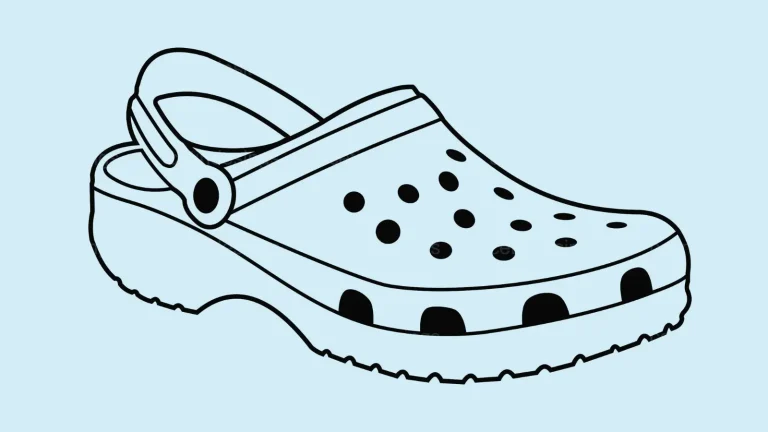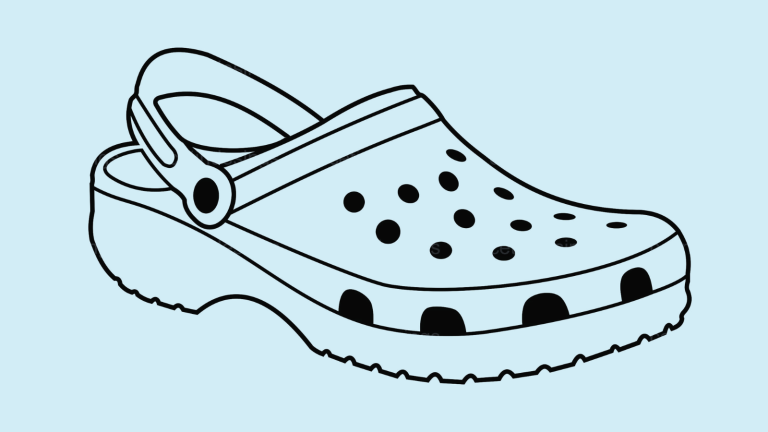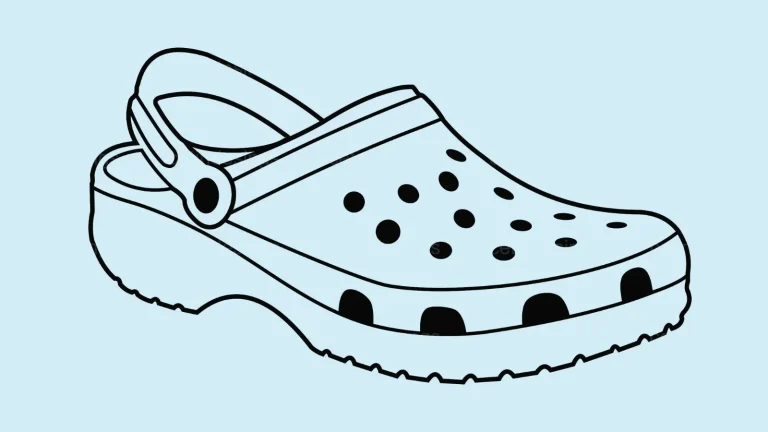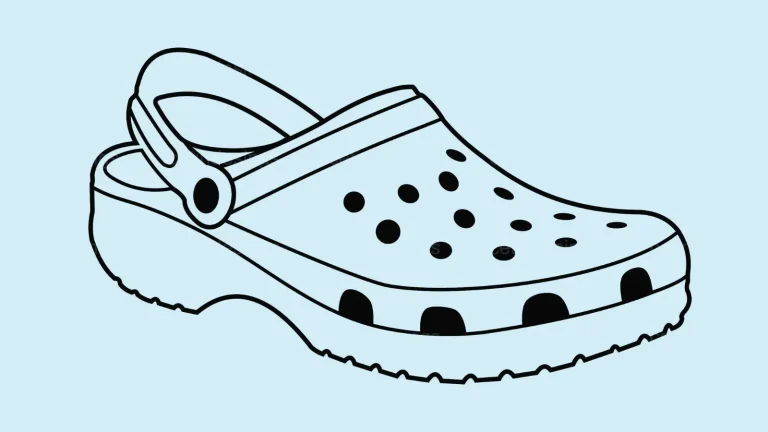Are Crocs Edible? Exploring The Truth
“Are Crocs edible?” is asked rather frequently, despite how absurd it may sound. The structure does not qualify as organic, even though organic components are included in the build.
Crocs are created using various unique, organic components, making them technically safe for consumption. However, that is not something that has ever been considered from a medical standpoint.
Footwear always contains distinct chemical constituents from your typical foods, making it difficult for your stomach to process them properly. This is true even if the components used in the manufacturing of the shoes are safe and non-toxic.
Because your stomach was not designed to digest shoes, you may also have extreme bloating and other comparable digestive disorders. This is because shoes are not digestible.
Can You Eat Your Crocs?
No, these shoes are designed to be worn outside, and consuming your footwear in any way, shape, or form is unhealthy. Some people believe Crocs can be eaten, but this is impossible unless conditions are met.
You might want to consider eating your Crocs if you are stranded without other food sources, such as a barren island or a desert. Cheating your shoes isn’t the best action in a normal situation.
The organic architecture used across the entire Crocs collection is why there is such a great buzz about them. It’s irrelevant whether they’re edible (no one wants to eat a shoe), but the main reason such inquiries are so well-liked is that they stand for a more secure construction procedure.
If you must know, the answer is yes; there have been people who have attempted this. In point of fact, in the year 2016, a little boy boiled and consumed parts of his Crocs footwear before writing about the experience in his school newspaper.
Because eating Crocs has never been known to result in someone’s death, the claim that they are non-toxic is technically plausible. Consuming them is still not a good idea for several reasons.
Are Crocs Toxic?
Croslite and Polymer, the two primary components used in Croc’s shoes, are both known for their non-toxic and environmentally beneficial features; hence the answer is no, Crocs are not hazardous. Crocs shoes are not poisonous. Crocs rely heavily on this feature as one of their primary selling features.
Manufacturers need to modify their practices to accommodate this trend, as customers are becoming increasingly sensitive about where and how their products are manufactured and whether or not they are poisonous or environmentally friendly. Crocs has adopted the same environmentally conscious business method to serve its customers better.
What Kind Of Material Are Crocs Made Of?
Crocs are made of resin, with closed cells known as “Croslite.” Crocs are made with a particular polymer derived from crude oil, which is employed in manufacturing. Because of this, the substance utilized to make Crocs is entirely organic and harmless to the human body.
Crocs have a plush and cushiony feel, incredibly lightweight and comfortable; these qualities combine to make them my go-to shoe.
Crocs have a plush and always fluffy texture because the material Croslite has a closed-cell structure. This structure does not absorb water, so they do not smell, and limit the growth of bacteria, so they do not get smelly. Crocs are also known for their durability.
What Are The Repercussions Of Consuming Crocs?
Consuming Crocs could potentially lead to any or all of the following unfavorable changes in your body:
- It could become lodged in your esophagus, in which case you would require the assistance of a medical professional to remove it.
- It could cause a gas buildup in your intestinal tract.
- It’s possible that your stomach won’t be able to digest it.
- You may get bloating and pain due to it.
- You can feel that something is lodged in your chest, which might make breathing difficult for you.
- It could cause diarrhea or even constipation in some people.
How should Crocs be sterilized?
The following procedures will be included in the process of sterilizing Crocs:
- To begin, you need to remove all of the grime and mud from your Crocs by thoroughly cleaning them with a brush, detergent, or soap-and-water solution.
- The next step is to use a disinfectant spray to destroy any bacteria that may be present in your Crocs by spraying them with the spray.
- Once the Crocs have been sprayed with a disinfectant, it is time to boil them to sanitize them completely. You might take an extra precaution by adding a pinch of salt to the water that is already boiling.
Why Are Crocs Sold at Such a High Price?
Because of its Croslite manufacture and exceptionally comfortable form, Crocs might give the impression that they are prohibitively pricey.
Croslite is not your typical low-cost, low-quality, run-of-the-mill plastic or rubber substance. It is significantly more advanced than the elements discussed before, and unlike other elements, it is not harmful.
Croslite is significantly more expensive than rubber or plastic alternatives because it is made of organic material, is non-toxic, and provides greater impact protection and advanced cushioning.
One of Crocs’s most notable characteristics is that virtually all of their sandals and shoes are constructed out of this relatively advanced and higher-performing material.
As a direct consequence, the production cost will inevitably go higher. The already high production costs would be further increased by the costs of transportation and any other sourcing, which would make the products rather unreasonably expensive. However, the vast majority of Crocs wearers believe that the product is well worth the cost.
Bottom Line
Undoubtedly among the most well-liked shoes available at the moment are Crocs. They are the best workhorses you may choose from as a sturdy alternative because they provide a variety of utilitarian features.
Crocs, constructed from recyclable materials like Croslite and Polymer, are widely recognized as one of the most eco-friendly shoe solutions.
But can you eat Crocs? Still, the answer is no. Though they won’t harm the soil or the water supply, the non-toxic and organic materials will easily disintegrate in the environment. However, this does not necessarily imply they would create a nutritious meal.
Some Similar Blog Posts

Hello, my name is Max Anderson, and I’m happy to welcome you to Shoespectra, the top website for shoe lovers. As the owner and inspiration behind this blog, I contribute a wealth of knowledge and a sincere enthusiasm for shoes to every piece of content I make.









